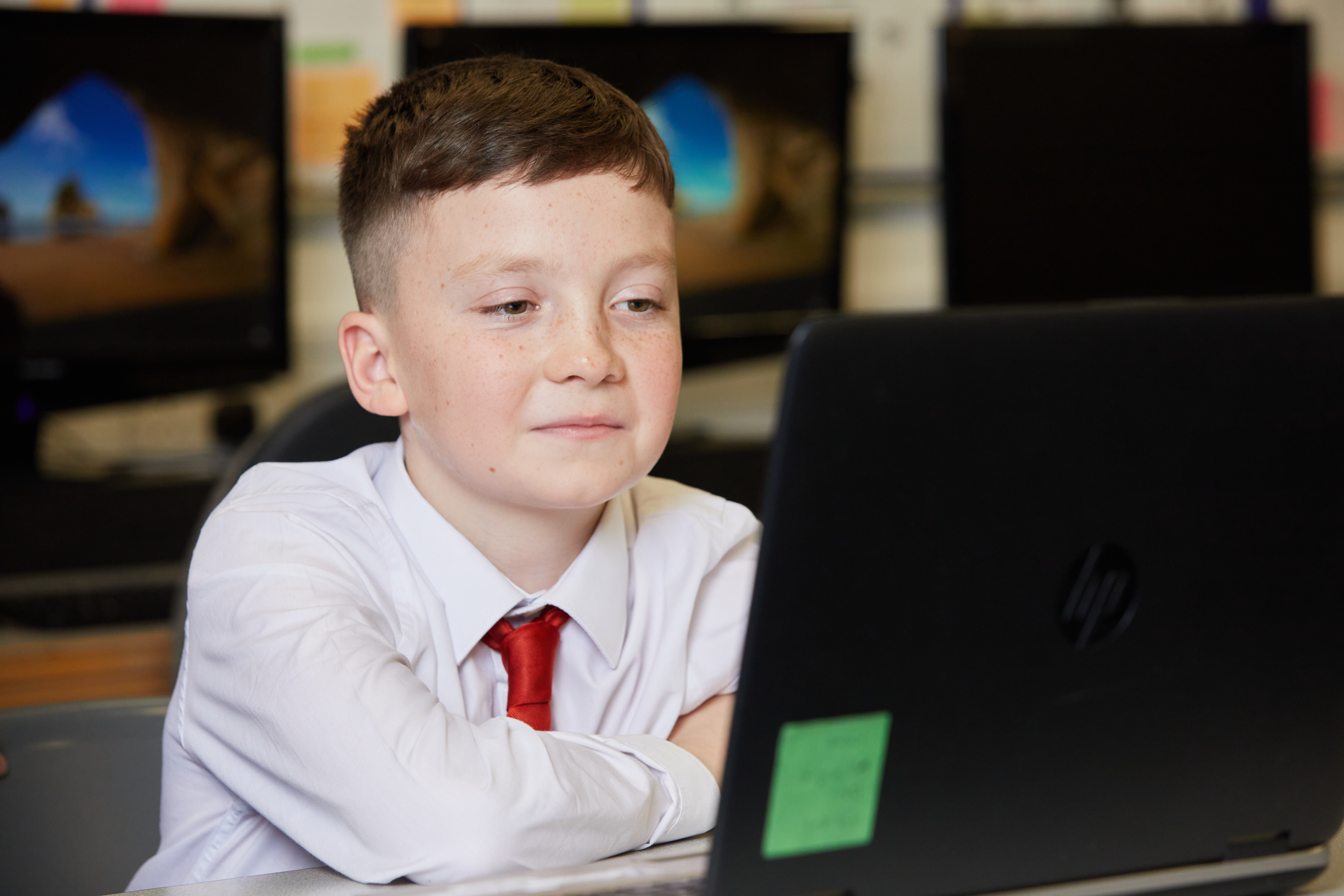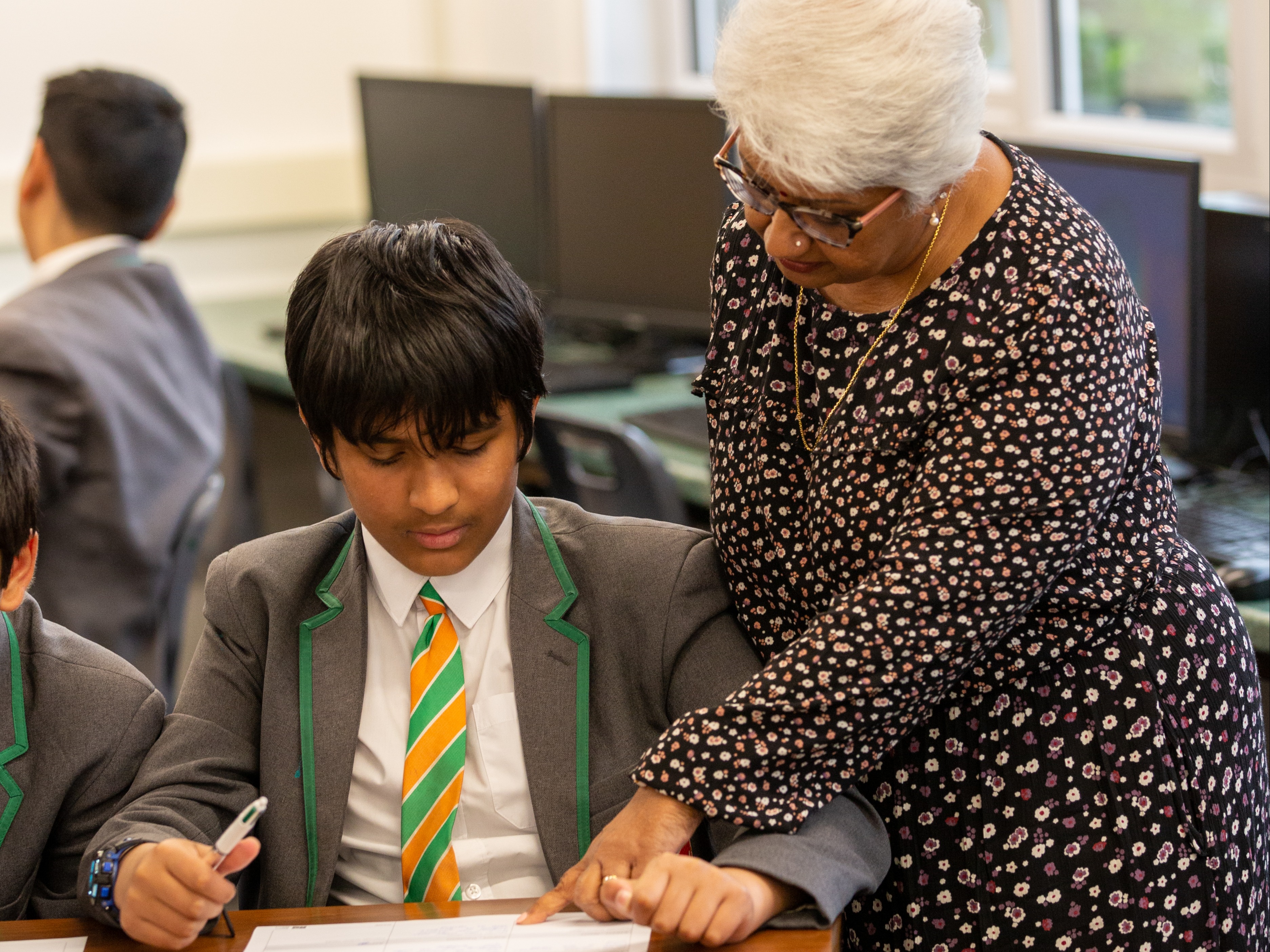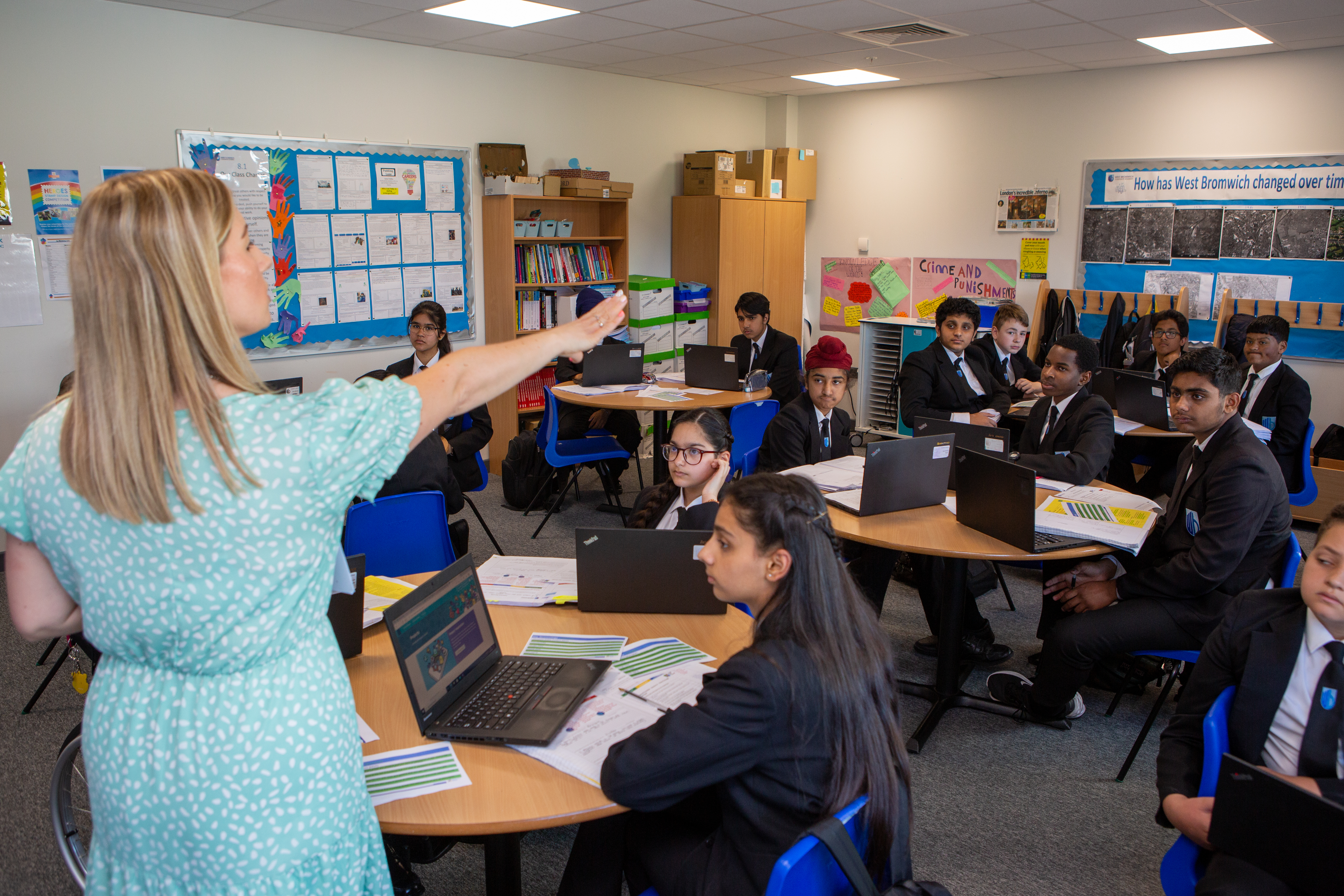2022 in focus: Collaborating to prepare young people for a greener future
A 2022 Impact Journey Case Study
At Apps for Good, we take an iterative approach and think it’s important to share open and honest reflections about what we learn, so that the learning in itself can have a positive social impact.
In 2021, thanks to funding from BNY Mellon, we began piloting our new technology course, Innovate for Climate Change, combining both knowledge building to understand the causes of climate change and tech innovation skills to enable young people to take climate action. We worked with 11 schools to test, iterate and improve the course to ensure it delivers maximum value to students and their teachers. This year, we’ve focused our energy on putting what we learnt into action.
The benefit of feedback
Early on, there were valuable learnings from this pilot. This led to us creating new content that supports all four Nations’ curriculums; increasing the computational thinking within the course and mapping Skills Builder’s essential skills throughout the course. We have made these changes to Innovate for Climate Change and will apply them to new courses. Here’s a summary of what we learnt and how we’ve responded:
1) Draw on teaching best practice to ensure resources are relevant to young people.
We received lots of positive feedback about how engaging the course materials are. We also had suggestions about how to make them even better. We’ve responded by drawing on up-to-date teaching and learning research in developing the latest iteration of the course. For example, we’ve improved our teaching resources, including a film that we produced about climate action app start-ups to help immerse students in the world of social tech and have since extended this approach in our forthcoming course, App for Social Action.
We’ve also harnessed industry approaches in the classroom, such as pair programming, design thinking and pitching to industry professionals and ensured that our resources are inclusive for all learners.
2) Integrate tech innovation skills building, with thematic content about climate change.
Initially, the first part of Innovate for Climate Change purely focused on knowledge-building about climate change and the second part focused on developing ideas and app-building. However, teachers told us that they would like to see computer science introduced earlier to help maintain student engagement and build technology skills throughout the course. We listened to their feedback and have restructured the course to introduce computational thinking throughout, making it more aligned to the computer science curriculum. The course now flows better and students are engaged in computer science because it’s delivered in such a relevant and engaging context.
3) Provide teacher training to build their confidence.
During our pilot, we trialled online teacher training that focused on building knowledge around climate change. All of the teachers who attended the training found the sessions helpful, and the majority felt confident about delivering the course as a result. We’ve now created on-demand online training materials so that teachers have an introduction to the course in their own time. We’ve also created a ‘how to’ guide for students to encourage independent learning.
Building confidence all round
Incorporating student and teacher feedback, collaborating with climate experts and having support from eleven partner organisations has given us huge confidence that we can offer a free-of-charge climate action course, packed with high quality resources that fill an urgent gap in the curriculums of the UK’s nations. We’re so proud to complete 2022 having already reached more than 450 students, with at least a further 50 schools due to deliver Innovate for Climate Change in 2023.
Preparing young people for a greener future is a goal shared by our industry partners. This valuable pilot was made possible by the generous support of BNY Mellon, who were first to join us. Charlotte Mukungu, Head of Philanthropy for EMEA, APAC and LATAM at BNY Mellon, said:
“We are proud to be working with Apps for Good on the ‘Innovate for Climate Change’ course. By raising awareness about the intersection between technology and climate change, we are inspiring the next generation of leaders and empowering them to make a difference."
To date, Innovate for Climate Change is supported by a total of ten industry partners who are providing funding and support, meaning the course remains 100% free of charge to schools and includes student access to industry Expert Volunteers. We are enormously grateful to BNY Mellon, DeepMind, EPAM, Garfield Weston Foundation, Google, GoCardless, Kingston Technology, OVO Foundation, RSA, SHCJ and Siemens for their ongoing support.
This year, we’ve worked collaboratively with partners, thematic experts, educators and students to test and refine our approach. Here's what teachers had to say about Innovate for Climate Change…
Engaging girls in STEM careers
Woodford County High School for Girls is delivering Innovate for Climate Change to year 8 students within their computing curriculum. Haalah, Ritisha, Hooria, Rameen and Anoosha, all aged 13 entered our 2022 Showcase and their app idea ‘Drop by Drop’ was selected as the BNY Mellon, Judges Favourite in the Climate Innovators category. BNY Mellon subsequently invited the girls to their Women in Technology and Innovation Centre for a workshop. Jess Ford, Design and Technology Teacher said the course content was well pitched for the students, commenting that:
“The students were really engaged with the course. They enjoyed working as part of a team and enjoyed opportunities to work independently as a group. They became passionate about their app and developed their knowledge around climate action and climate change as part of the course.”
We’re delighted to hear that the girls are interested in a career in STEM and Jess thinks that Innovate for Climate Change has helped solidify their aspirations.
No time for passive pedagogy here!
Students from Dunoon Grammar School in Argyll and Bute were among those to pilot the course. The school, recently awarded global recognition for their community collaboration within their curriculum, delivered the course to coincide with COP26 in Glasgow. Reflecting on the course structure of tech innovation skills combined with climate knowledge, Paul Gallanagh, Principal Teacher of Computer Science said:
“Our young people simply won’t allow us to go back to our former more passive pedagogy. They love being able to fully immerse themselves into deep and meaningful learning experiences where they are able to lead and make a real difference to their communities. They never cease to amaze me with their creative capacity and the extent they are willing to accept a social dimension to their work. This helps them go the extra mile, bringing out their best – which results in a more fulfilling experience and better outcomes for all concerned.”
 Student at Dunoon Grammar School
Student at Dunoon Grammar School
Lightening the load for teachers
Bhadra Kara is the Assistant Subject Team Leader in Computing at Challney Boys School in Luton and has been delivering Apps for Good courses for several years. Bhadra sees herself as a facilitator, supporting students with their ideas. She said, “What's really good about the Apps for Good courses, is that we are provided with all the resources, which makes it much easier for the teacher. We just facilitate, we don't have to prepare any resources. It's really very helpful.”
 Bhadra Kara and her class at Challney High School for Boys
Bhadra Kara and her class at Challney High School for Boys
Another school involved in the Innovate for Climate Change pilot is West Bromwich Collegiate Academy, where Assistant Principal, Hannah Percival has led the delivery. Hannah is a history specialist, and by her own admission she was naturally daunted about delivering the course. Hannah told us, “To start with Computer Science is very much out of my comfort zone, but actually, the resources and the support provided by Apps for Good have made it easy.” She went on to say that “It’s enabled the students in the way that it’s been set up, with the quality of the resources, and the support that they provide. All of which they offer for free, which is amazing.”
Hannah is not alone. This is echoed by Emma Darcy, Director of Learning for Technology at Denbigh High School and Chiltern Learning Trust who said, “When I first heard about Apps for Good it seemed a little daunting, only because I had no experience myself in app creation. But, all the resources and materials are provided for you, and access to the tools that you need, and that really does give you a lot more confidence in terms of thinking, ‘Yes, I can do this’.”
 Hannah Percival and her class at West Bromwich Collegiate Academy
Hannah Percival and her class at West Bromwich Collegiate Academy
We’ve taken the learning from developing Innovate for Climate Change and will apply this framework to new courses. We continue to listen to students and teachers, who are always invited to provide feedback after engaging in our courses.
Our new course, App for Social Action launches in early 2023, so watch this space!